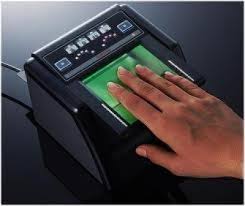CBN’s limit on cash withdrawal via ATM may stifle cash flow — Experts
They spoke against the backdrop of the recent CBN policy which pegged the daily cash withdrawal from the ATM at 300 dollars (N60,000 from N150,000).
They told the News Agency of Nigeria (NAN) in Lagos that the policy was a contradiction of the cashless regime earlier espoused by the apex bank.
An economist, Dr Evans Osabuohien, said that the policy was a contradiction of the cashless policy of the CBN.
Osabuohien, who lectures at the Department of Economics and Development, Covenant University, Ota, Ogun, added that the policy would have adverse effects on businessmen.
“The policy will lead to hardship in the economy and it will affect the confidence of businessmen in the banks,’’ Osabuohien said.
The don noted that the policy might force bank users to look for other ways of banking their money without undue restrictions.
“I think that this policy may force people to keep their monies in their houses with the attendant security risks,’’ the don said.
NAN reports that the policy was part of CBN measures to curb illicit financial flows out of the economy.
Another financial expert, Prof. Sheriffadeen Tella, believed that the policy was only going to be a temporary measure.
According to him, the directive is not a major instrument for the strengthening of the naira.
Tella, who lectures at the Department of Economics, Onabisi Onabanjo University, Ago Iwoye, Ogun, said the policy was an attack on the CBN cashless policy.
“We are not running a full cashless economy yet. The CBN would have raised the bar higher for those who want to make huge transactions,’’ Tella said.
The economist noted that the policy would reduce cash flow in the economy, adding that it would ultimately stifle demand and lead to unemployment.
“If there is no cash flow, it stifles demand; productivity will fall, and this will lead to unemployment,’’ the don said.
The professor insisted that the policy remained a temporary measure and it was aimed at preparing the economic system for a major policy statement by the apex bank.
Mr Okechukwu Udensi, a businessman, said that the policy would make financial transactions very difficult and time-consuming.
According to him, the ATM has made cash withdrawals very convenient and has reduced the risk of carrying cash.
“Some of us transact businesses in huge amounts.
“Even the banks charge us for electronic funds transfer within the banking hall. So, where is the cashless policy?’’
He noted that the rigours of going through the banking hall for transactions was cumbersome and a lot of time for meaningful business activities would be lost.
Mr Ikenna Okonkwo, Director, heels.com.ng, an e-commerce platform, said that the policy would pose a challenge for small businesses.
Okonkwo noted that bigger e-commerce businesses whose goods go above the N60,000 benchmark would have some difficulty in sorting out payments above that amount.
“For now, the prices of our goods are within N20,000.
“It is only on few occasions that we had purchases above the N60,000 mark and that will be a problem to sort out,’’ Okonkwo said.




